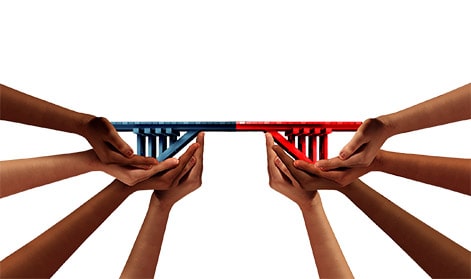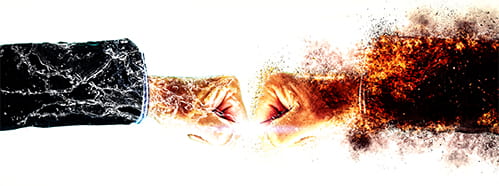Decree Number 34 of 2021 and Arbitration in Dubai
“Arbitration is justice blended with charity.”
– Nachman of Breslov
 The Decree Number 34 of 2021 (the "Decree") was issued last year, and it's pertaining to UAE's arbitration community. The Decree took effect on September 20, 2021. Many in the dispute resolution world were taken aback when it announced substantial changes to the arbitration structure in the Emirate of Dubai, including the offshore Freezone known as the Dubai International Financial Centre (DIFC).
The Decree Number 34 of 2021 (the "Decree") was issued last year, and it's pertaining to UAE's arbitration community. The Decree took effect on September 20, 2021. Many in the dispute resolution world were taken aback when it announced substantial changes to the arbitration structure in the Emirate of Dubai, including the offshore Freezone known as the Dubai International Financial Centre (DIFC).
The Decree dissolved two arbitration institutions in Dubai: I the Arbitration Institution of the Dubai International Financial Centre ("DIFC"), which included the DIFC-LCIA arbitration center, and (ii) the newly founded Emirates Maritime Arbitration Centre ("EMAC") (together with the "Cancelled Centres"). The Cancelled Centre’s functions have been moved to the Dubai International Arbitration Centre ("DIAC"), which has been functioning onshore in Dubai since 1994. Dubai International Arbitration Centre, was founded in 1994 by the Dubai Chamber of Commerce and Industry as the 'Centre for Commercial Conciliation and Arbitration,' which provides arbitration services to local and foreign corporations. In the following months, DIAC is scheduled to publish new arbitration rules, establish a new arbitration court comparable to the ICC International Court of Arbitration, and a new board and an administrative body.
The Decree states that the regulations of the Cancelled Centres will continue to apply until DIAC announces new rules, as long as they do not conflict with the Decree's stipulations. The Decree also clarifies that agreements signed before September 20, 2021, including a dispute resolution clause that specifies either DIFC-LCIA or EMAC Rules, will remain valid and that DIAC will take over the administration and supervision of such disputes from the Cancelled Centres unless the parties agree otherwise. It is unclear when the new DIAC rules will be released and what will happen to arbitrations that are still pending under the Cancelled Centre’s rules once the new DIAC regulations are released.
The Decrees Impact
The Decree affects them differently depending on where they are in the lifecycle of their contracts and disputes. Existing DIFC-LCIA and EMAC agreements apply to ongoing arbitrations, and DIAC will take over the administration of any cases started under the procedures of these Centres unless the parties agree otherwise. The proceedings that began on September 20 under the regulations of the Cancelled Centres are to be continued without interruption. Delays are possible, especially in cases where the parties have not provided sufficient fund advances before September 20. The Decree specifies that the Cancelled Centre’s arbitration procedures will continue to apply to ongoing proceedings. The new DIAC will take over all the Cancelled Centre’s rights and obligations. How the transfer to DIAC's administration will be carried out remains to be seen. If future DIFC-LCIA or EMAC proceedings begin after September 20, but before the new DIAC regulations are published, the Decree is silent on the rules to be applied. This silence could leave parties with contracts referencing DIFC-LCIA or EMAC rules with a gap. Parties that want to start such processes today should get legal counsel and speak with the appropriate authorities before filing a mediation or arbitration request. If there is no separate agreement between the parties, then the existing dispute resolution clauses referring to the Cancelled Centres would effectively become subject to DIAC's administration and new rules. Parties should analyze their existing agreements to see if DIAC and its yet-to-be-published arbitration and mediation rules are the best options for resolving disputes, and if not, change their contracts appropriately. References to the Cancelled Centres should not be included in subsequent contracts. Parties should seek legal assistance when selecting arbitration rules taking place in or relating to Dubai, as the new DIAC arbitration rules have not yet been published. Parties can continue to hold their arbitration in either the DIFC or "onshore" Dubai.
The Decree specifically states that any DIAC arbitration clause that does not identify a "seat" will be held in the DIFC. This is crucial for arbitral parties outside the UAE because arbitration agreements that do not specify a seat will now default to the DIFC (rather than "onshore" Dubai). The DIFC as an arbitration seat for international parties is important because it subjects them to supervisory courts that operate in English, are based on English common law principles, and apply the DIFC Arbitration Law for supervisory and procedural issues. Parties now referring future issues to DIFC-LCIA arbitration will have their arbitrators chosen and confirmed by the soon-to-be-established DIAC arbitration court rather than the LCIA Court. Furthermore, the DIFC-LCIA and DIAC cost estimations are different. Arbitrator expenses in DIFC-LCIA arbitration are calculated based on hourly rates and time spent by arbitrators. In contrast, arbitrator costs in the old DIAC system are calculated based on the amount in dispute. The new DIAC Rules' cost scheme will thus be a key factor in hiring skilled arbitrators, influencing the viability of this new arbitral institution.
Possible Challenges
 The Decree's primary goal is to maintain party autonomy. It specifies that pre-existing arbitration agreements are legitimate and that any proceedings that were in progress at the time it was passed may be continued. The new DIAC would administer the arbitration in place of the defunct entities. While the Decree tries to verify the parties' earlier contractual agreements, there are still a few questions. The first effect would be on the parties' agreement to arbitrate. Disputes are likely to arise, as some parties may try to invalidate the arbitration agreement by questioning their consent to arbitration. Parties may also dispute how to proceed under the new regime.
The Decree's primary goal is to maintain party autonomy. It specifies that pre-existing arbitration agreements are legitimate and that any proceedings that were in progress at the time it was passed may be continued. The new DIAC would administer the arbitration in place of the defunct entities. While the Decree tries to verify the parties' earlier contractual agreements, there are still a few questions. The first effect would be on the parties' agreement to arbitrate. Disputes are likely to arise, as some parties may try to invalidate the arbitration agreement by questioning their consent to arbitration. Parties may also dispute how to proceed under the new regime.
Tribunals, the mainland Dubai Courts, and the offshore DIFC Courts will play a key role in establishing the rules. It's especially vital to avoid conflicting rulings from Dubai's courts. Establishing a straightforward process quickly will help set the new DIAC's credibility and minimize unnecessary issues, especially if the parties agree on how to proceed. The protocol was drafted in cooperation with the Dubai Courts and the DIFC Courts to ensure that it guides rather than confuses.
 Conclusion
Conclusion
The dissolution of the DIFC-LCIA is a significant change for arbitration in Dubai. Still, it also presents a chance for the DIAC to establish itself as one of the region's top arbitral institutions. Decree 34 has a significant impact on the UAE's arbitration scene, and consolidating the numerous Centres should assist Dubai's status as a global arbitration hub to rise even higher. However, more clarity is needed – particularly about the interplay with the DIFC-LCIA.
 English
English
 عربي
عربي Русский
Русский 官话
官话 português
português
 Türk
Türk 



.jpg&w=120&h=80&zc=1)


















